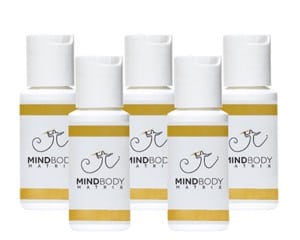
“Happiness is a habit – cultivate it” – Elbert Hubbard
Can happiness be a habit?
Elbert Hubbard, a well-known American writer and philosopher, once said “happiness is a habit – cultivate it.”
It means you have control over your happiness. You can train yourself to be happy every day. And this article will show you how to do that – how to make happiness a habit.
Things You Should Know About Happiness
- Happiness is contagious. You will feel happy by being around happy people.
- It is easier to be happy when outdoors than when inside an enclosed space.
- Happiness is affected by genetics. Studies show that one can inherit his parents’ tendency to be happy.
- Floral scents and bright colors can brighten up your day.
- Happiness can alleviate pain and boost your immune system.
Habits: How Are They Formed?
A habit forms when a new behavior becomes automatic and is performed with minimum awareness. You will form a habit through repetition and consistency.
Here are 4 steps that can help you, according to science:
- Aim for specific goals – For example, saying “I’ll be happy every day” is too vague to be effective. “I’ll consciously take actions to make myself happy 15 minutes each day” is much better.
- Create cues – After setting a specific goal, connect it with something you regularly do. This way, you will have a regular time when you perform your habit-forming actions. For instance, you can say “I will listen to my favorite songs for 15 minutes after arriving home from work.”
- Make repetition fun – Relate your habit-forming actions with things you love. Combining your desire to form a habit and your love for certain things will help you reach your goal efficiently.
- Look for the appropriate social support – We are influenced by the people around us. To form a habit, it is highly recommended that you hang out with people who already have that habit or are trying to form it.
These people can teach you what you should or should not do. They can give you quick tips to reach your goal. And they can inspire you to continue forming the habit you want.
How To Make Happiness a Habit
“Happiness is an inside job” – Harry Hoover
Here are the concrete actions you can perform to make happiness one of your habits:
1. Smile
We smile when we are happy. But science tells us that the reverse is also true: we become happy when we smile.
Research shows that smiling causes chemical reactions in the brain, resulting in the release of dopamine, serotonin, and other hormones.
Dopamine increases the feeling of happiness while serotonin is linked to reduced stress.
People with a low level of dopamine are likely to be depressed. Those who have a low level of serotonin are likely to be both depressed and aggressive.
It means you can “fake” being happy (i.e. by smiling) until you actually become happy.
This “fake-it-till-you-make-it” approach is easy and simple. It tricks the human brain to believe that the person is happy, which leads to the release of hormones related to real happiness.
2. Exercise
When you exercise, your brain releases dopamine, endorphin, endocannabinoid, and adrenaline. These are chemicals that are associated with happiness.
Moreover, muscle contraction causes the human body to produce myokine, a hormone that relieves stress and boosts happiness.
Exercise also results in a better body shape and overall health, which then leads to improved self-confidence.
Confident people are more likely to be happy than those who are not.
3. Sleep Enough
Sleeping has an interesting relationship with happiness. If a person gets enough sleep, he is likely to have positive emotions throughout the day.
Studies in fact show that good sleep quality is associated with a positive outlook on life. But it is also clear that happiness leads to good sleeping habits.
Sad people find it difficult to have a good night’s sleep. Thus, a happy person has a good sleep quality that further boosts his happiness.
A sad person will generally have a poor sleep quality, which causes more negative feelings and behaviors.
4. Get Some Sunlight

Sunlight exposure is associated with the release of serotonin. As stated earlier, serotonin is linked to stress reduction.
People who do not get enough sunlight have low serotonin levels, making them vulnerable to anxiety and depression.
5. Be Grateful
Gratitude has a strong connection with happiness. A grateful person is likely to relish his experiences and build relationships with others. He is also likely to have positive emotions.
Lack of gratitude, on the other hand, will weaken one’s relationships and will cause an overall negative perspective on life.
Clearly, being grateful for what you have is one of the best habits for a happy life.
6. Be Kind
Kindness has a reciprocal relationship with happiness. Kind people experience happiness and have happy memories.
They become happy simply by recounting their acts of kindness.
It is also believed that many happy people are inherently kind. And their kindness leads to happiness, which then reinforces their kindness.
7. Surround Yourself With Positive and Supportive People
Being alone is one of the primary causes of loneliness. Humans have always been classified as “social animals.” We need to interact with others to be happy.
But remember that the people we surround ourselves with influence our feelings and behaviors.
If you are around people who love to whine and complain, you will probably begin doing the same.
It is better to be with those who create and nurture their own happiness.
8. Spend Time In Nature
Being in nature produces pleasant feelings. It reduces fear, anger and stress. In fact, research shows that having just one simple plant inside one’s room has a considerable effect on a person’s anxiety and stress.
Humans find nature scenes engrossing – they distract us from our pain and worries. This is why people usually improve their mood just by spending some time outside.
9. Invest In Personal Growth
“The best investment you can make, is an investment in yourself” – Warren Buffett
Learning new things and pursuing goals, by themselves, make people happy. Enroll yourself in classes you find interesting, be it meditation, business or martial arts classes.
Or you can just read books on the topics you love. Having a growth mindset is believed to be one of the things you need to attain long-term happiness.
Thus, you should add continuous learning to your happy life habits.
A few years back I did it for myself by joining Mindvalley membership (actually I became their client before membership was even available) and I cannot recommend them enough.
If you are interested in what Mindvalley has to offer, check out my review:
Mindvalley Membership – Is It Worth It? (my personal experience)
10. Practice Meditation
Want to learn meditation from Emily? Watch her FREE masterclass now!
Meditation helps you to rewire your brain and weaken the neural pathways responsible for anxious thoughts.
Also, the people who meditate regularly are more compassionate and empathetic towards others.
This helps you to build stronger relationships, which will in turn improve your overall happiness.
Meditation can even increase endorphin and serotonin levels, known as the “feel-good brain chemicals.”
11. Learn To Let Go
There are many things outside your control. It can be in the form of losing a job or a loved one.
But knowing that you have no control over these situations helps you to use a power you do have – the power to choose your thoughts and attitudes.
You can choose happiness and positivity even in the direst circumstances.
12. Look After Yourself
Self-care is a huge part of being happy. To attain true and consistent happiness, you should learn how to take care of yourself.
Start eating healthy food, getting enough sleep, and exercising regularly.
Avoid alcohol and illegal drugs. Live healthy to be happy.
13. Have a Purpose In Life
Want to learn how to find your life purpose? Join FREE Mindvalley training with Michael Now!
Having a “meaning” or purpose in life is an element of happiness in positive psychology.
Studies show that people with a sense of purpose have improved resilience to anxiety and stress. They also have a better ability to think.
Knowing you have a purpose makes you value your life more and take better care of yourself.
In addition, you would want to invest in personal growth to fulfil this purpose.
Finding your purpose in life is thus linked to other things that can make you happy.
14. Learn the Law Of Attraction
If you are a spiritual person, consider learning the law of attraction. According to this law, you will hold in your hands what you can see in your mind.
The law of attraction has three general steps: (1) thinking of the thing you want; (2) proclaiming it; and (3) waiting for it to happen in your life.
These are easy steps that you can apply to achieve happiness and acquire other good habits for a happy life.
Want to learn how to manifest? You’ll be spoilt for choice when you join Mindvalley membership. Here’s what Michael Beckwith says on the subject.
How to Make Happiness a Habit: Summary
You can train yourself to be consistently happy. The process might not always seem easy, considering it involves going outside to experience nature and establishing relationships with other people or developing a growth mindset.
However, the benefits are certainly worth it. By applying what you learned in this article, you will likely develop happiness into a habit.
Related Posts:
Mindvalley Membership – Is It Worth It? (my personal experience)
Why Happiness Matters: 7 Important Reasons
4 EASY Visualization Techniques For Positive Outcomes In Life
Feng Shui for Better Life, Good Luck and Happiness
What Does It Mean To Be Fit and Healthy?
Can You Be Fit and Healthy With Low-Impact Exercises?
Spiritual Benefits Of Walking In Nature (Connect With Nature Spirituality)
Why Is Gratitude So Powerful: 10 Most Important Benefits of Appreciation
Why Self Love Is Important and Where to Start With It
How Can Having a Holistic View Help You Become a Better Person?







Great advice!
Thank you!
I had never heard that advice about smiling to generate happiness. That’s so good to know, thank you so much!
You’re welcome and put it to a test:)